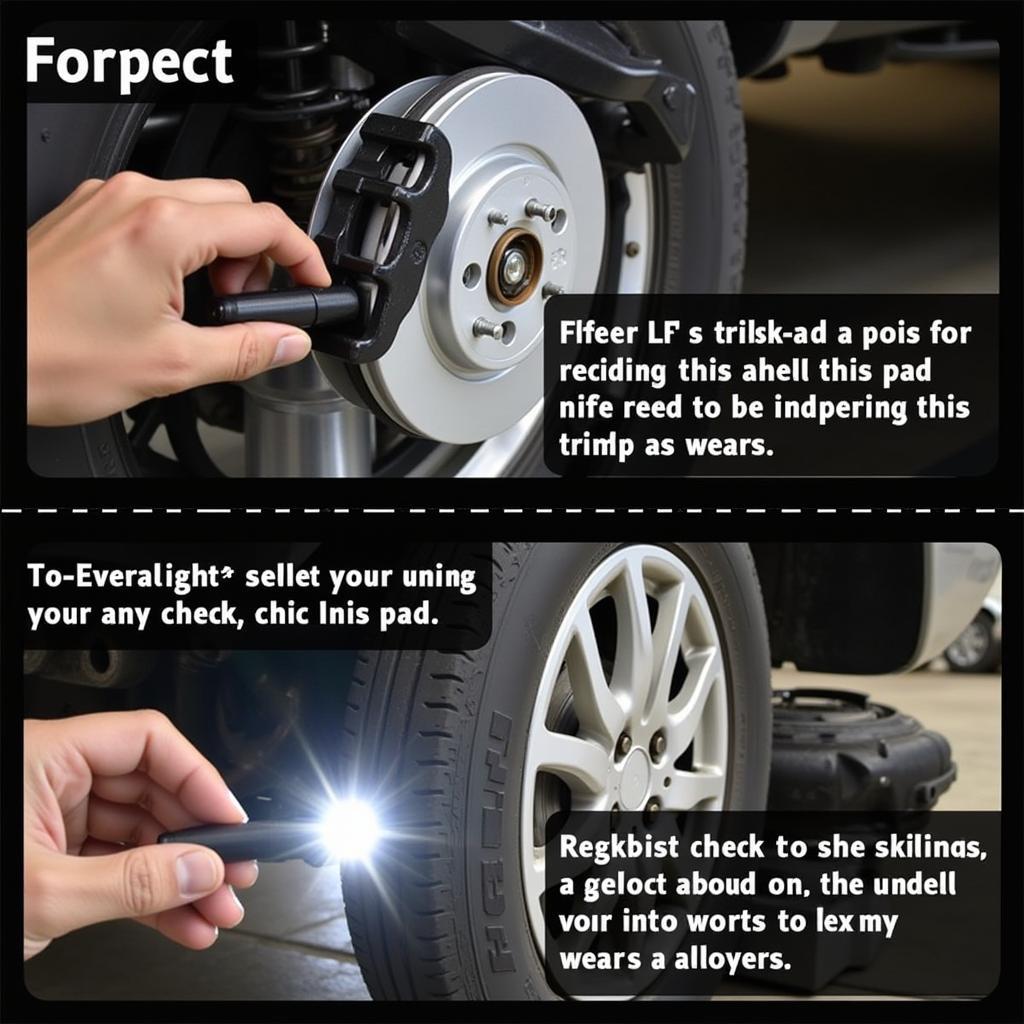A new battery should solve your car starting problems, right? Not always. If you’ve recently replaced your battery but are still experiencing issues, a bad alternator could be the culprit. This article explores the connection between a bad alternator and a new battery, helping you diagnose the problem and find a solution.
Understanding the Alternator’s Role
The alternator is the heart of your car’s electrical system. It charges the battery while the engine is running and powers all the electrical components, from the headlights to the radio. If the alternator fails, the new battery will quickly drain, leaving you stranded. Similar to car battery dying symptoms, a failing alternator can manifest in several ways.
Signs of a Bad Alternator
Several signs point to a failing alternator, even with a brand new battery. These include:
- Dim or flickering lights: The alternator struggles to provide enough power, causing lights to dim, especially when accelerating or using other electrical components.
- Warning lights: The battery or check engine light might illuminate on the dashboard. Sometimes, the car battery check engine light can be misleading, leading you to believe it’s a battery issue.
- Strange noises: A failing alternator might produce whining or grinding sounds due to worn-out bearings.
- Difficulty starting: Even with a new battery, the car might struggle to start or require jump-starting frequently. This situation resembles a new car battery car still wont start scenario.
- Electrical component malfunctions: Power windows, radio, and other electrical accessories might operate erratically or not at all.
Why a New Battery Doesn’t Fix a Bad Alternator
Replacing the battery addresses a discharged battery, but it does nothing to fix a faulty alternator. The new battery will only mask the underlying alternator problem temporarily. It’s like pouring water into a leaky bucket – it will eventually empty. This is closely related to the cause of rapid discharge of battery.
Testing Your Alternator
Several methods can test your alternator’s functionality:
- Visual inspection: Look for loose connections, worn-out belts, or signs of damage to the alternator itself.
- Battery voltage test: Measure the battery voltage with the engine off and then while running. A significant drop in voltage indicates a charging problem.
- Alternator output test: This test requires a multimeter and measures the alternator’s output voltage and amperage.
- Professional diagnosis: A qualified mechanic can perform a comprehensive test using specialized equipment.
What to Do if Your Alternator is Bad
If your alternator tests bad, replacement is usually the only solution. While some parts can be rebuilt, replacing the entire unit is generally more cost-effective and reliable. Problems like those encountered with the 2018 gmc acadia battery problems can often be traced back to the alternator.
Conclusion
A bad alternator can drain even a new battery, leading to starting problems and other electrical issues. Recognizing the signs of a failing alternator is crucial for a timely diagnosis and repair. If you suspect your alternator is the problem, have it tested and replaced as soon as possible to avoid further complications and ensure your car remains reliable. Don’t let a bad alternator ruin your new battery – address the root of the problem for a smooth and trouble-free driving experience.
FAQ
- Can a bad alternator damage a new battery? Yes, a failing alternator can overcharge or undercharge a new battery, shortening its lifespan.
- How long can I drive with a bad alternator and a new battery? It depends on the battery’s charge and the electrical load, but it’s generally not recommended to drive with a bad alternator.
- How much does it cost to replace an alternator? The cost varies depending on the make and model of your car, but expect to pay a few hundred dollars for parts and labor.
- Can I replace an alternator myself? While possible, it’s generally recommended to have a qualified mechanic perform the replacement.
- How can I prevent alternator failure? Regular maintenance, including belt inspections and proper electrical system care, can help prevent premature alternator failure.
- What happens if I ignore a bad alternator? Continued driving with a bad alternator can lead to complete battery failure, leaving you stranded, and can potentially damage other electrical components.
- Are there rebuilt alternators available? Yes, but new alternators are often recommended for reliability and warranty.

